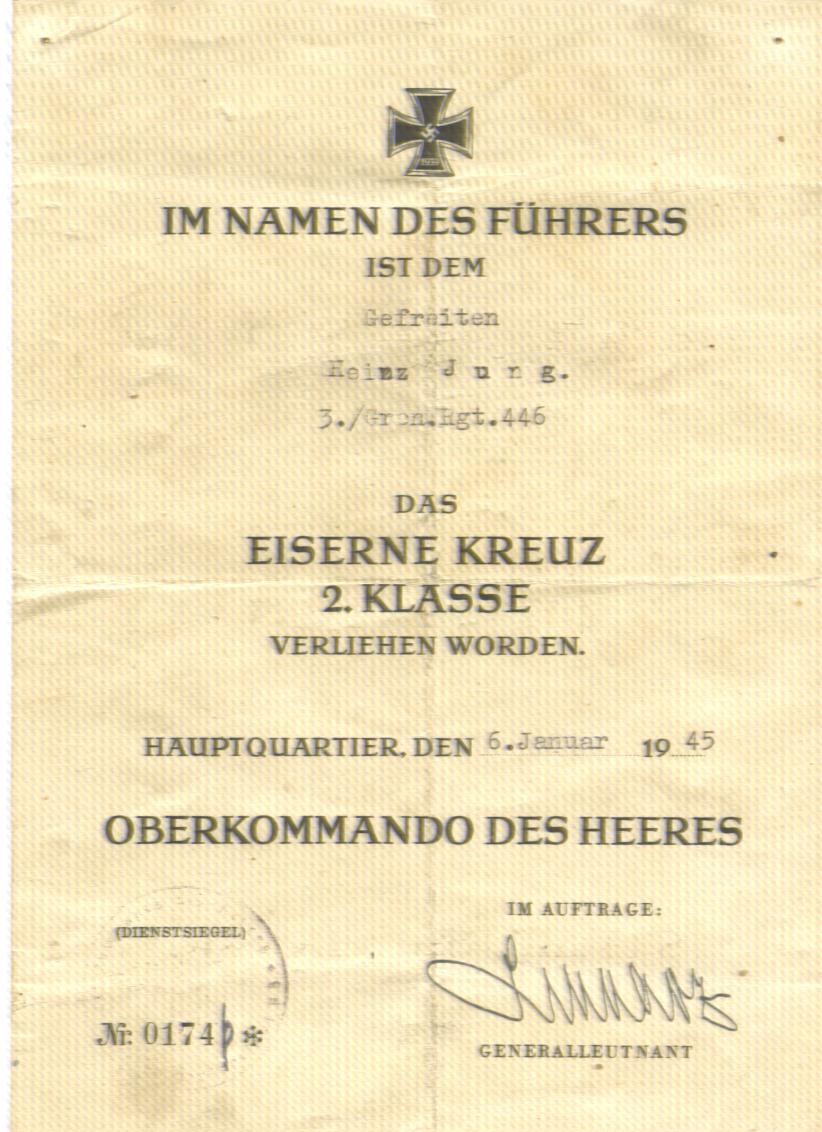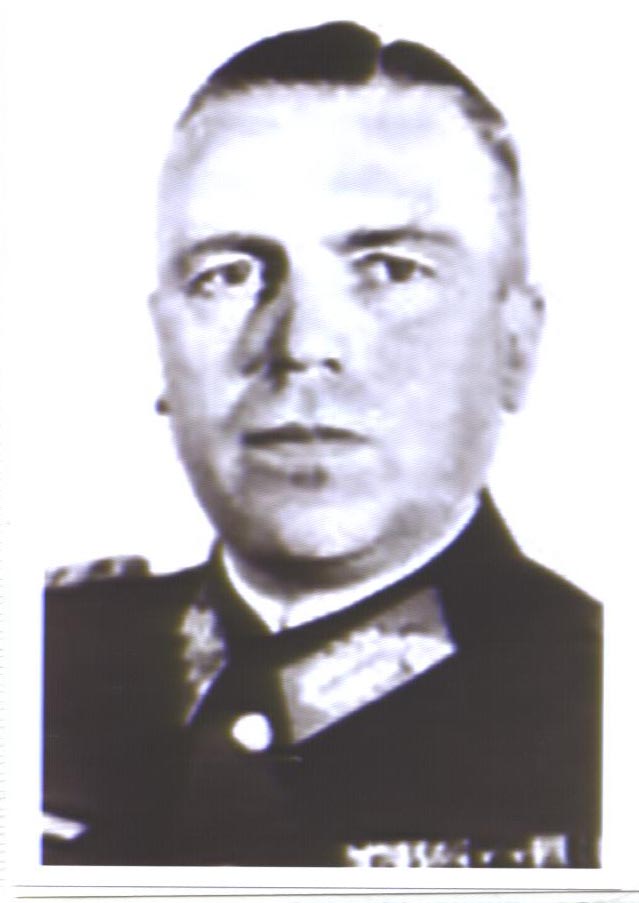|
|


|
LINNARZ Viktor Leoplod
Generalleutnant Viktor Leopold Linnarz
*19 August 1894 Alfeld, Lower Saxony
+14 October 1979 Weiden in der Oberpfalz, Bavaria
Generalleutnant Viktor Leopold Linnarz (19 August 1894 – 14 October 1979) was a German army officer who served in the Prussian Army in World War I and the German Army during World War II.
He joined the Prussian Army in March 1914 and was awarded the Iron Cross during his service in World War I. At the outbreak of World War II in September 1939 he was an Oberstleutnant. He was promoted to Oberst (Colonel) in 1940 and served as a Brigade commander in the 3rd Panzer Division from 27 June 1941 to August 1941. In 1942 he was appointed the Deputy Chief of the Army Personnel Office (HPA) at the Army High Command (OKH). On 1 January 1943 he was promoted to Generalmajor (Major General) and on 1 April 1944 to Generalleutnant (Lieutenant General). On 21 July 1944 he arrived at the country home of Generalfeldmarschall Erwin von Witzleben, having been ordered to arrest him following his involvement in the 20 July plot coup attempt.
Linnarz was the commander of the 26th Panzer-Division in Italy from 1 March 1945 until 8 May 1945. He surrendered his division to the British and was then taken into captivity and held in the prisoner-of-war camp at Ghedi, Italy where he made a posthumous award of a Knight's Cross of the Iron Cross to a major in a Panzergrenadier Regiment without authority. Linnarz was interrogated about his wartime role and recollections on 25 February 1948. He died aged 85 in 1979 in Weiden in der Oberpfalz.
The following text is an abstract (reprinted from LoneSentry.com) of a report, published on January 1946, by “Defeat” Headquarters Army Air Forces, Office of the assistant chief of air staff–2, Washington, D.C. and prepared by the Headquarters Army Air Forces, Mediterranean Theater of Operations, Intelligence Section to record the views of Allied air power from those who were on the receiving end. This report is the result of several conversations after the war with the Generalleutnant Victor Leopold Linnarz who was the Commanding General of the German 26th Panzer Division in Italy from 1 March 1945 until 8 May 1945. The 26th Panzer Division was transferred in Italy from the France on July 1943. The following chapter is “Relative Value of Air Attack and Artillery Fire”.
«The effect of air bombardment on ground troops is not so great as commonly imagined, as the troops can always move out of their shelters immediately after the air raid. Men accustomed to continuous artillery barrages for days on end are not likely to be absolutely demoralized by an air bombardment lasting 15 minutes. An experienced soldier knows that an air attack will be over in a few minutes at the most, while the shell fire may continue for hours. If he has a foxhole or ruin to protect himself he can sit out the air bombardment without moving from his position and with little effect on his morale, viz: Cassino. The effect of bombing attacks against green and inexperienced troops is of course more demoralizing. The really demoralizing experience for the ground soldier is the sight of the artillery-directing aircraft circling over our positions for hours. You know for a certainty that if you make one move, you will have a shell in your foxhole within two minutes. In the position of warfare which was so characteristic of the Italian front, the troops were afraid to move about, and when the fighting started they were reluctant to come out and fight, feeling that they were being constantly observe. In an aerial bombardment you do not feel that an attack is personally directed against you. Jabos (fighter bombers) and artillery-directing aircraft on the other hand seem to have a personal grudge against you. Strafing attacks were particularly demoralizing because finally your Jabos began strafing anything that moved–even my orderly collecting vegetables. Toward the end of the war, movement in vehicles and on foot became almost impossible and during the last stages of the battle of the Apennines. I reported that our troops could accomplish movements only during a three-hour period at night. At dawn their positions were frozen by Jabos and artillery directed from the air». The photo depicts explosions from an Allied bombing raid on German positions on the north bank of the Sangro River, Italian Campaign, November 1943. Victor Sierra
Iron Cross 2nd Class award document signed by Linnarz with unsigned postwar photo of Linnarz
Price: $100.00
Please contact us before ordering to confirm availability and shipping costs.
Buy now with your credit card
other ways to buy
|
|


